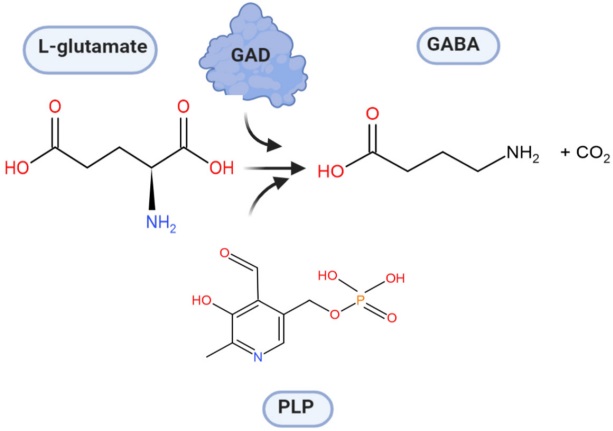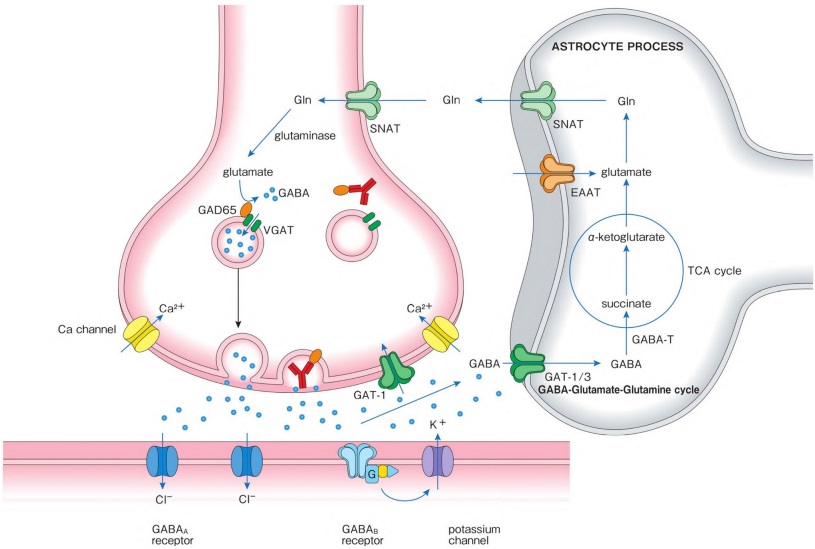NAA Services for Anti-Glutamic Acid Decarboxylase (GAD)
Anti-glutamic acid decarboxylase (GAD) antibodies have been associated with type 1 diabetes mellitus (T1DM) and a great number of neurological diseases such as epilepsy. Creative Biolabs is one of the well-recognized experts professional in applying natural autoantibody (NAA) analysis services against different kinds of disease-related biomarkers to assist customer for disease diagnosis. With years of experience, our scientists now offer high-quality services for anti-GAD autoantibody for our worldwide customers.
Background of Anti-glutamic Acid Decarboxylase (GAD) Antibody
There are two major types of GAD enzyme, GAD65, and GAD67, which catalyze the formation of gamma-aminobutyric acid (GABA) at different locations in the cell and different time periods of development. Anti-GAD autoantibody is a rare kind of antibody. It works against the GAD enzyme, thus blocking the conversion of glutamate to GABA. Patients with anti-GAD antibody present motor and cognitive problems due to low levels or lack of GABA. The anti-GAD antibody is found in some neurological syndromes, including paraneoplastic stiff-person syndrome, type 1 diabetes, Miller Fisher syndrome (MFS), limbic encephalopathy, eye movement disorders, epilepsy, and cerebellar ataxia.
 Fig.1 Decarboxylation of l-glutamate to GABA catalyzed by GAD enzyme.1
Fig.1 Decarboxylation of l-glutamate to GABA catalyzed by GAD enzyme.1
The Role of Anti-GAD Antibody in Epilepsy
Epilepsy associated with anti-GAD antibody is mostly pharmacoresistant temporal lobe epilepsy (TLE), also known as autoimmune epilepsy. TLE is a rarely diagnosed condition and associated with low levels of GABA. The anti-GAD antibodies are believed to play a part in the possible relationship between epilepsy and type 1 diabetes mellitus (T1DM). Epilepsy and T1DM can be seen together in one patient, or can be seen separately in anti-GAD antibody positive patients. Serum anti-GAD antibody is recommended to be measured in patients with middle-aged onset TLE.
 Fig.2 The synaptic and molecular mechanisms underlying these anti-GAD65 Ab-induced pathogenic actions.2
Fig.2 The synaptic and molecular mechanisms underlying these anti-GAD65 Ab-induced pathogenic actions.2
The Role of Anti-GAD Antibody in Type 1 Diabetes
T1DM is an autoimmune disease with the development of abnormal immune responses to specific β-cell autoantigens in addition to another organ-specific autoimmunity. Immunological markers, such as the pancreatic islet cell antibodies, anti-GAD65 antibodies, and insulin autoantibodies have been documented to be present for disease diagnosis and may even predict future T1DM in siblings of affected subjects. The vast majority of our T1DM pediatric patients are autoantibody positive, and anti-GAD antibodies are the most commonly detected antibodies.
What We Can Do about NAA?
We are committed to providing extensively custom NAA products and services to promote the progress of your projects. Equipped with our well-established platforms and experienced scientists, we can provide comprehensive NAA services, from NAA detection, NAA profiling, to NAA epitope mapping. We will be your best partner in your NAA project.
Several neurological syndromes have been recognized associated with GAD antibodies. With the rapid development of NAA research, different biomarkers have been extensively used for the diagnosis of a variety of diseases. Experienced scientists at Creative Biolabs are committed to providing high-quality anti-GAD antibody services to contribute to the success of your project. Our services include but not limited to epilepsy and T1DM. If you are interested in the service we provide, please feel free to contact us for more detail and information.
References
- Yogeswara, Ida Bagus Agung, Suppasil Maneerat, and Dietmar Haltrich. "Glutamate decarboxylase from lactic acid bacteria—A key enzyme in GABA synthesis." Microorganisms 8.12 (2020): 1923.
- Mitoma, Hiroshi, and Mario Manto. "Advances in the pathogenesis of auto-antibody-induced cerebellar synaptopathies." The Cerebellum 22.1 (2023): 129-147.

